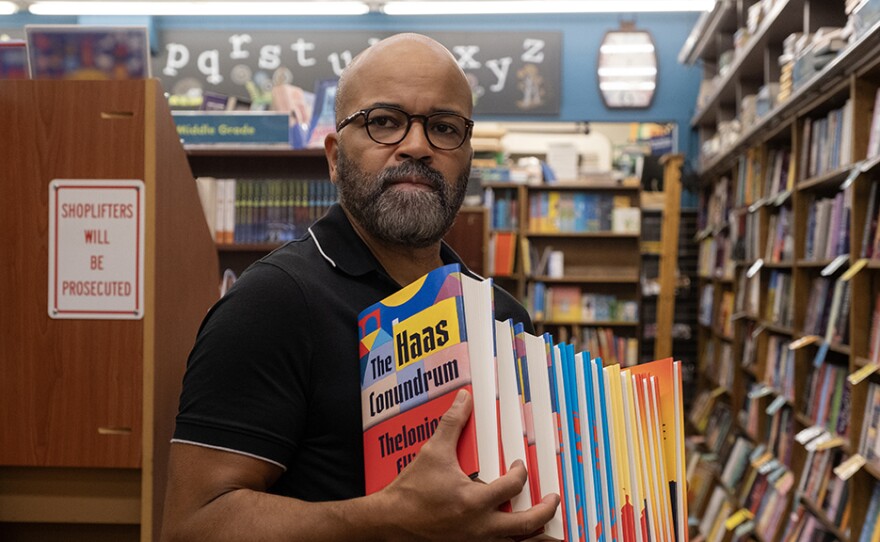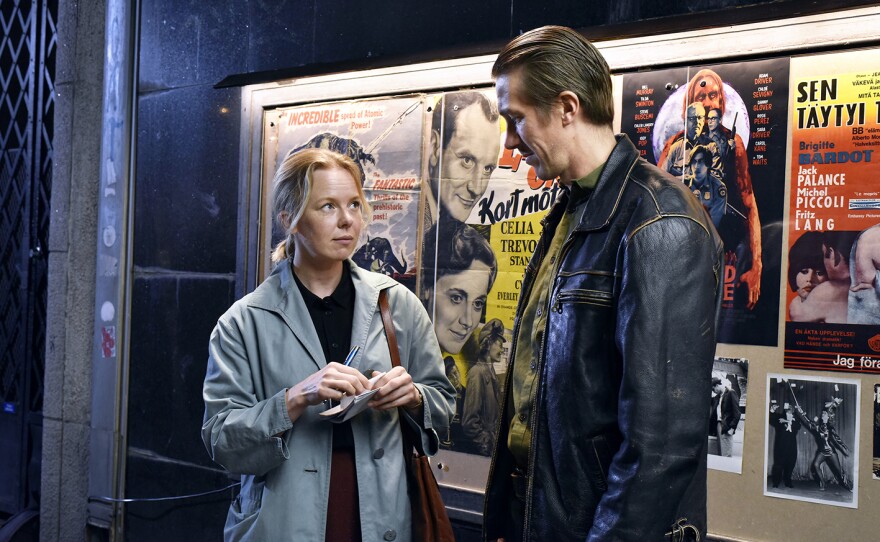The final 2023 film releases are still trickling into cinemas. Here is a trio for your consideration.

'All of Us Strangers'
(opening Jan. 4 at Landmark's Hillcrest Cinemas and Angelika Film Center)
In "All of Us Strangers," Adam (Andrew Scott) is a writer and a solitary soul. One night there’s a knock on his door and Harry (Paul Mescal) appears. The two seem to be the only occupants in this tower of deserted London apartments. They mirror each other in loneliness and pain, and immediately but tentatively, start a relationship.
When Harry sees a photo of Adam's parent, Adam reveals that his parents died just before he turned 12 and he is now trying to write about them. He dismisses Harry's inquiry by pointing out that it was all a long time ago. But Harry rightfully notes that such intense memories may always remain vivid.
As Adam pursues his writing, things take a strange turn. He returns to his family home and sees his parents (Jamie Bell and Claire Foy) as they were before they died. So he is now older than they are.
"All of Us Strangers" is a film about memory, and about trying to go back to re-examine the past and redefine key relationships. The film maintains a mysterious tone so we question what might be real or imagined or perhaps, even supernatural.
Since Adam is a writer we feel a sense of deliberate exploration, of trying to figure out how the past lays the groundwork for the future, and wondering if you can go back and fix problems you now see.
Andrew Scott (Professor Moriarty in "Sherlock") and Paul Mescal (wonderful in the indie hit "Aftersun") anchor the film with low-key but deeply compassionate performances
"All of Us Strangers" is a melancholy, bittersweet and beautiful film about grief, loss and trying to connect with others.

'American Fiction'
(opening Jan. 4 at Angelika Film Center)
"American Fiction" left me conflicted. I liked the concept (involving a Black writer's experience with modern literary publishing) and I always love Jeffrey Wright. But the satire never seemed sharp or particularly clever.
It is hard to distill a complex novel — it is based on Percival Everett's "Erasure" — into a two-hour film. The book (which I have not read) juggled an angry satire on the literary establishment and how African American literature is perceived and published with a story about a respected literary author Thelonious 'Monk' Ellison (Wright) coming to terms with his ailing mother (Leslie Uggams). The film succeeds impressively with the latter but comes up short on the satire.
Written and directed by Cord Jefferson, "American Fiction" gets to the complex and difficult layers of family. His film also has some fun getting into the Ellison's head for one scene where the writer and his characters interact. But the film is too rooted in the real world to hit the crazy satiric high notes of Boots Riley's "Sorry to Bother You" or to enter fully into a writer's head like in "Adaptation."
The satire goes for predictable, low-hanging fruit rather than for a more insightful and biting critique. The film seems particularly disjointed in depicting rival author Sinatra Golden (Issa Rae), who has penned a book that Ellison deems offensive for relying on tired and offensive tropes. But he envies her financial success and popularity.
There is some sharp writing, but the ending lacks punch as it goes for a predictable resolution that shows how white-run media profits from ‘Black’ entertainment that caters to accepted stereotypes. Ellison chooses to go along with those tropes to be successful, but he also wants to keep his moral high ground so he can look down on everyone around him who does not have his sense of enlightenment.
There is a certain moral smugness to the end that implies only Ellison and filmmaker Jefferson see through all the hypocrisy, stereotypes, racism and stupidity. So, if we do not like this film or this ending, then we must be racists or idiots. It is a similar kind of protective armor that "Barbie" had. If you don't like "Barbie," then the only possible reason for that opinion is that you are a misogynist or you support the patriarchy. But in both instances, it could also be because the films fall short artistically in delivering their worthy social messages. I can agree with the arguments these films make but still find fault in the moviemaking.
"American Fiction" does enough well to make me frustrated that the overall film was not better. The performances throughout — Wright and then Tracee Ellis Ross and Sterling K. Brown as other family members, and Erika Alexander as a love interest — are superb. And the family drama rings painfully true and real.

'Fallen Leaves'
(opening Jan 5 at Digital Gym Cinema)
Let me just begin with two things: I absolutely adore Finnish filmmaker Aki Kaurismäki, and he is a decidedly acquired taste.
I fell in love with him from the moment I saw his 1989 film "Leningrad Cowboys Go America." His style has not changed one iota over the decades. It remains determinedly deadpan and highly stylized in a way that may turn some people off. But if you are willing to step into his world on his terms, you will discover an endearing weirdness and gallery of delightful characters as well as a sharp, insightful eye critiquing the modern world.
"Fallen Leaves" is Kaurismäki's take on rom-coms. Ansa (Alma Pöysti), works at a supermarket where she is checking items for their expiration dates and tosses out the expired ones.It is a mindless task made even more ridiculous by the policy that no one can take and use the expired items. They must all be thrown away. Ansa takes an expired item home each night to consume in her tiny flat as she listens to the news about the war in Ukraine.
Meanwhile, Holappa (Jussi Vatanen) works at a construction site where he keeps a liquor bottle on hand to get him through the day. While Ansa disposes of expired food, Holappa demolishes buildings deemed no longer useful. The cold, callous world they live in seems eager to dispose of unnecessary things, and perhaps people are becoming part of that waste.
But against this backdrop, Ansa and Holappa cross paths and find each other. But fate — or perhaps sitcom cruelty — keeps throwing obstacles in their way. There is both dark comedy as well as sweet romance in this unexpectedly enchanting film.
Kaurismäki makes his film feel light and trivial as he focuses on mundane daily tasks, yet we also feel a gloomy and harsh world weighing down on our two lovers. "Fallen Leaves" is unique in its approach and style, and I hope I can convince some of you to give it a try. As artists worry about AI creating works that will displace them, I cannot imagine AI ever being able to duplicate or come close to what Kaurismäki does so effortlessly and naturally. Take a gamble as the new year starts, and check out "Fallen Leaves."





